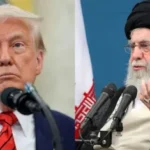
The Planalto Palace works with the possibility that the United States will announce a 50% tariff this week on Brazilian products. Internally, members of the Brazilian government have referred to the measure as a “Bolsonaro tariff.” The information was published by columnist Assis Moreira in the Valor Econômico newspaper.
The measure is scheduled to take effect on August 1 and is played in Brasilia as a political gesture of US President Donald Trump in support of former President Jair Bolsonaro. In addition to tariff elevation, the United States Commercial Representative (USTR) office is expected to open a formal investigation into bilateral trade relations with Brazil. The process may last up to one year.
According to sources of the Brazilian government, the correspondence sent by Trump to Brazil points out that there is no room for negotiation in the case of the fare. The reading is that the motivation of the White House is political, not economic, with two main objectives: to allow Bolsonaro to dispute the 2026 elections and to ensure freedom of action for large US technology companies in the Brazilian market.
“The government has to negotiate, as long as with the focus maintained in the economic-commercial sphere any tariff issue, including the” Bolsonaro tariff “of 50%,” said a source heard by the report.
Despite the tone considered inflexible on the part of the United States, the government of President Luiz Inacio Lula da Silva chose not to react immediately with retaliation. The short -term strategy is to elaborate a plan to reduce the economic impacts of the tariff on strategic sectors. The content of this plan is being developed by technicians and should be presented to the president in the coming days.
The Planalto also prepares for the possibility of new actions from the United States, especially if Jair Bolsonaro’s trial advances between September and October. Among the hypotheses in analysis is the application of financial sanctions directed to specific people, as a way to signal discontent to the performance of the Brazilian judiciary.
At the same time, Brazilian diplomacy follows the movements of Argentina, which under the leadership of President Javier Milei seeks a direct trade agreement with the United States. The Argentine government has exploited breaches in Mercosur’s common external tariff to negotiate bilateral terms. The volume of trade between Argentina and the US is smaller, which can facilitate quick advances. For Washington, interest goes beyond trade and involves topics such as non-regulation of digital platforms and access to raw materials such as lithium.
As a reaction to the new scenario, Brazil has sought to accelerate the diversification of its business partners. Vice President Geraldo Alckmin, who also heads the Ministry of Development, Industry, Commerce and Services, has a scheduled trip to Mexico in August. The mission is to expand the bilateral agreement between the two countries, which can be signed without Mercosur approval.
The “Bolsonaro tariff”, an informal name used by federal government sectors, is considered more than an economic measure. For authorities in Brasilia, it is a political and diplomatic action with direct repercussions on the relationship between the two countries.
Commercial tension occurs at a time of reconfiguration of the global geopolitical scenario, with emerging countries seeking greater regulatory autonomy and the United States reinforcing unilateral measures in defense of their strategic interests.
There is still no official demonstration of the White House about the intention to reverse or soften the fare. The Brazilian government, in turn, awaits definitions in the coming weeks before taking additional measures in the diplomatic or legal field.
The economic impact of the measure will depend on the sectors included in the tariff list and the duration of sanctions. Brazilian exports to the United States involve industrial, agricultural and mineral products. A 50% abrupt increase in tariffs can directly affect the competitiveness of Brazilian companies in these markets.
The federal government evaluates that the political developments of the tariff may have a direct influence on the Brazilian electoral environment, especially if there is explicit interference from the US government about the process involving former President Jair Bolsonaro in court.
The economic team studies, among other measures, temporary subsidies, market diversification and contract renegotiation to minimize the impact on affected productive chains. The priority, according to Planalto interlocutors, is to preserve jobs and avoid deceleration in the most vulnerable sectors.
In the coming days, the official position of the Brazilian government is expected to be defined at meetings between Casa Civil, Itamaraty, Ministry of Finance and Ministry of Development. The goal is to consolidate a technical and political response that avoids the escalation of the conflict and preserves the country’s commercial interests.
Source: https://www.ocafezinho.com/2025/07/27/governo-lula-ve-tarifa-de-trump-como-pressao-por-bolsonaro-fora-da-cadeia-em-2026/

